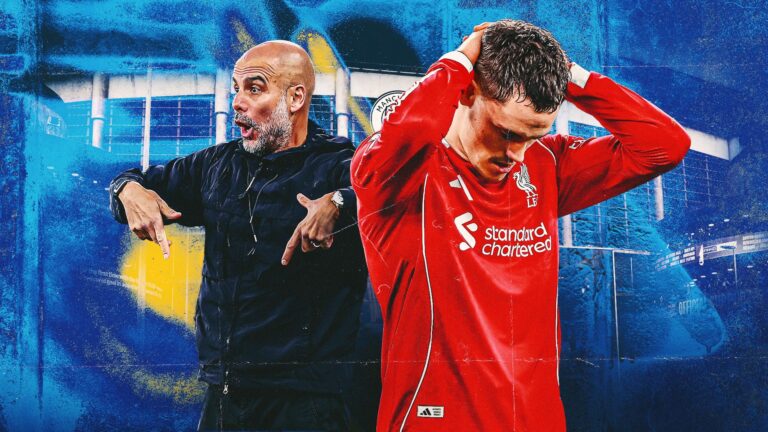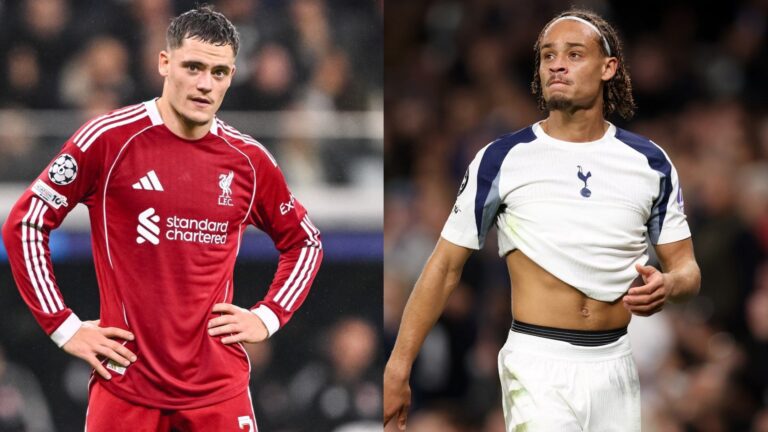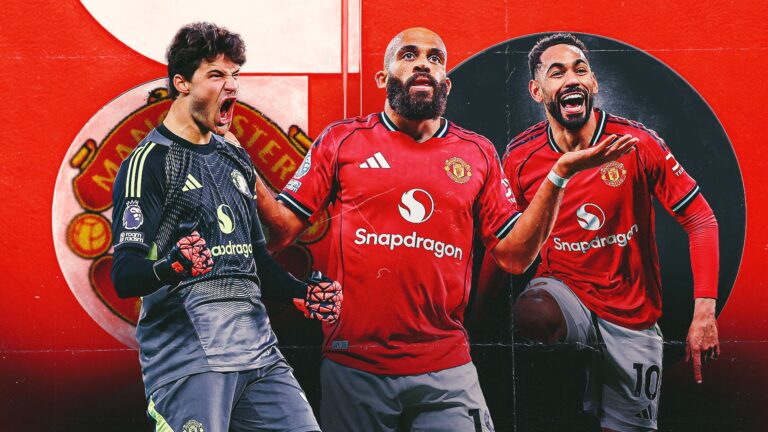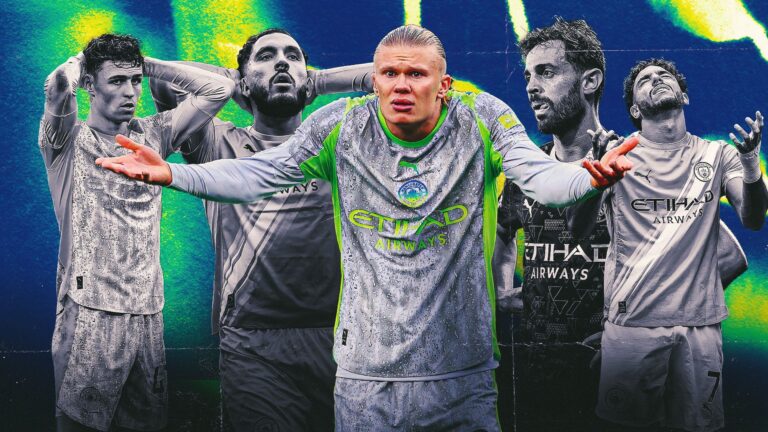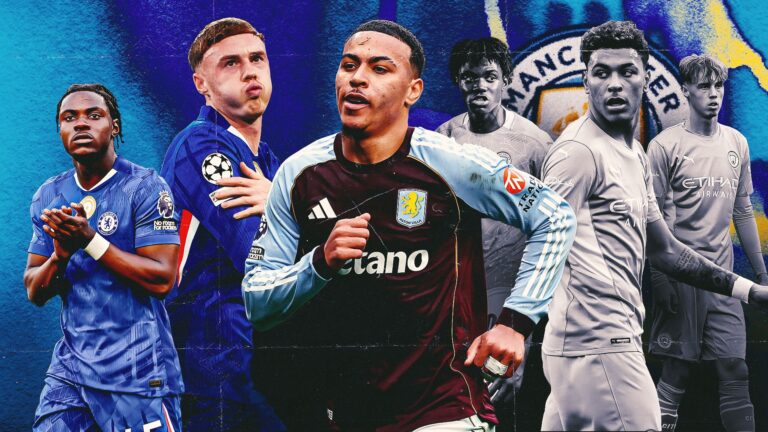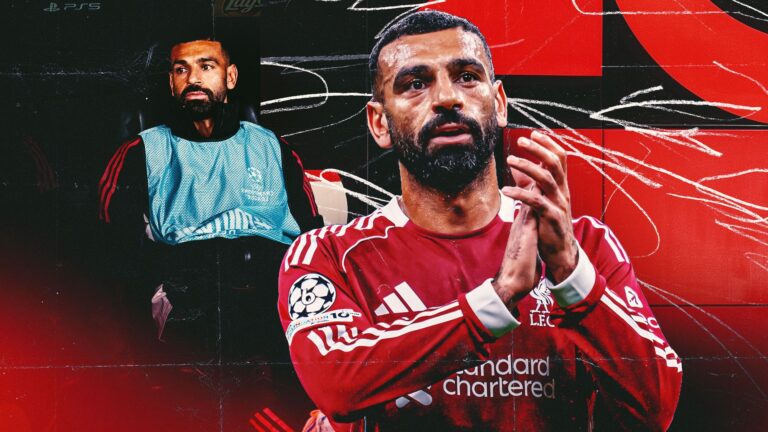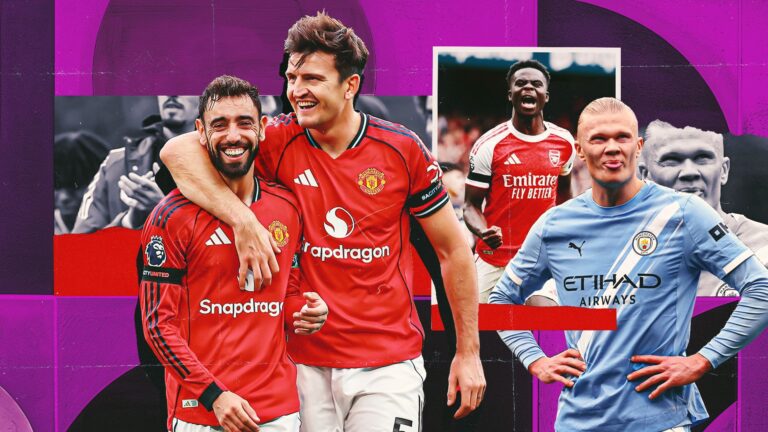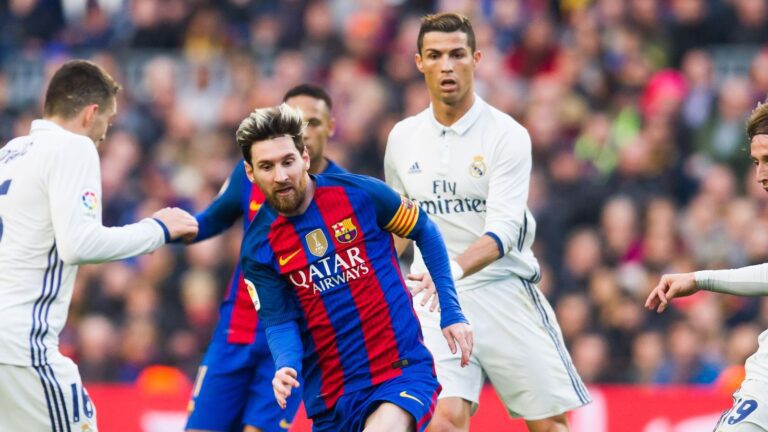Unveiling the Potential for Ole Gunnar Solskjaer’s Return to Manchester United
As whispers of managerial shifts echo through Old Trafford, the spotlight falls on Ole Gunnar Solskjaer, once a heroic figure at Manchester United. With current coach Amorim under intense scrutiny after a string of pivotal games, reintroducing this legendary manager has ignited fresh conversations. Solskjaer’s past leadership, marked by securing second place in the Premier League during the 2020-21 campaign through a dynamic, counter-attacking style echoing Sir Alex Ferguson’s glory days, poses an intriguing debate: Could re-embracing a known leader truly rejuvenate the squad, or does it pose significant hazards in today’s competitive landscape?
An in-depth review of past precedents shows how 10 notable coaches fared upon rejoining their former teams, weighing their achievements against difficulties to determine the long-term merits of such decisions.











Evaluating the Most Notable Returns of Managers to Prior Teams
In light of ongoing rumors about leadership changes, examining historical examples of coaches retaking the reins at familiar clubs uncovers a mix of inspiring victories and sobering failures. This fresh ranking highlights 10 key figures, incorporating the latest statistics to illustrate how football has shifted, including the rise of data-informed strategies in game plans.
Frank Lampard’s Varied Journey from Player to Coach at Chelsea and Elsewhere
Iconic as Chelsea’s top performer, Frank Lampard amassed 211 goals over 648 outings for the side. His transition to management at the same venue didn’t match this prowess. From July 2019 to January 2021, he recorded a respectable 52.38% success in 84 contests. Later, his temporary role from April to June 2023 fell to just 9.09% across 11 games. Today, at Coventry City in the lower divisions, he’s achieved a 45% win rate, demonstrating his flexibility in adapting to new environments.
Guus Hiddink’s Significant Influence in Temporary Positions at Chelsea
With a career exceeding three decades, Guus Hiddink has steered outfits such as PSV Eindhoven and Real Madrid effectively. Taking over Chelsea after Luiz Felipe Scolari’s departure in 2009, he exceeded expectations by capturing the FA Cup and almost progressing in the Champions League semi-final versus Barcelona, amid disputed calls. His initial temporary stint boasted a 72.73% win rate, while his next from December 2015 to May 2016 dropped to 37.04%, yet elevated the team from 16th to 10th in the Premier League. His achievement of an unbroken 12-game streak as a debut manager remains a key reference in current evaluations.
Tony Pulis’s Sturdy Comebacks at Stoke City
Tony Pulis epitomized Stoke City’s unyielding defense, similar to erecting an impenetrable barrier. Starting in November 2002, he maintained a 35.88% win rate until June 2005. Upon returning in 2006, he guided the club to Premier League promotion and a seven-year run with a 36.64% rate, including continental matches. This phase, like fortifying a solid stronghold, allowed Stoke to compete against elites, mirroring contemporary teams that leverage specialized plays for surprises.
Fabio Capello’s Disciplined Tactics at Real Madrid
Renowned for his straightforward methods, Fabio Capello instilled order at clubs like AC Milan. At Real Madrid, his early engagement from May 1996 to June 1997 delivered a La Liga championship with a 64.58% win rate. His subsequent return in July 2006 secured another title, though at 56%, showing the hurdles in recreating success amid evolving team setups; modern figures indicate similar declines for coaches due to roster changes.
Claudio Ranieri’s Ongoing Triumphs with Roma
A cherished personality in the sport, Claudio Ranieri is exceptional for his repeated engagements with the same team. Following his astonishing Premier League success with Leicester in 2016, he managed Roma from 2009-11 at 55.95%, dipped to 50% in 2019, and surged to 61.11% from November 2024 to June 2025, earning fifth place and European entry. This persistent adaptability reflects coaches who evolve with contemporary methods, as Ranieri has incorporated more ball-control elements recently.
David Moyes’s Revival at West Ham
After a difficult departure from Sunderland in 2017 following relegation, David Moyes’s arrival at West Ham in November drew doubts. He secured survival with a 29.03% win rate, though supporters demanded shifts. His 2019 reappointment revitalized the outfit, gaining European berths and a 2023 Conference League victory, pushing his rate near 45%. This resurgence, akin to mentors who reconstruct via emerging talents, stands in contrast to West Ham’s recent downturns, with data revealing a 30% performance drop post-exit.
Jose Mourinho’s Energetic Periods at Chelsea
Known as the ‘Special One,’ Jose Mourinho transformed Chelsea in 2004, arriving from Champions League triumph with Porto and claiming a domestic double. His debut term averaged 2.22 points per game. Upon returning in 2013, he added another double but averaged 1.96 points, resulting in his departure after nine losses in 16 games by December 2015. This trend, common in celebrated returns, underscores the weight of expectations, with updated reviews highlighting Mourinho’s shift to defensive countering is later positions.
Zinedine Zidane’s Commanding Tenures at Real Madrid
Moving effortlessly from playing to leading, Zinedine Zidane elevated Real Madrid, clinching three straight Champions Leagues in his initial period from January 2016, plus La Liga and more, at 70.47% wins. His 2019 return sustained achievements with a league win, though at 60.53%. As a definitive victor, Zidane’s style, comparable to optimizing a precision machine, still shapes current leadership, with fresh data affirming his methods in maintaining squad loyalty.
Jupp Heynckes’s Victorious Re-entries at Bayern Munich
From his goal-scoring days to coaching excellence, Jupp Heynckes thrived at Bayern Munich over three periods. His first yielded a 57.07% win rate and consecutive Bundesliga titles. The 2013 return delivered a treble, and 2017 added another crown. This steady performance, like master builders reconstructing dynasties, shows endurance, with recent archives crediting Heynckes for Bayern’s ongoing analytical recruitment practices.
The Pinnacle of Comeback Stories: Carlo Ancelotti at Real Madrid
In terms of encore performances, Carlo Ancelotti leads the pack. His initial Madrid spell from 2013-15 featured a Champions League victory, but his later return yielded even more: two La Ligas, two additional Champions Leagues, and other honors. Now at the helm of Brazil’s national side, Ancelotti’s narrative illustrates how seasoned expertise can enhance outcomes, with current stats indicating his teams hold over 65% win rates internationally, setting the gold standard for coaching revivals.
Is Ole Gunnar Solskjaer the Right Choice for Manchester United’s Future?
Conversations about managerial transitions at Manchester United often center on the possibility of recruiting Ole Gunnar Solskjaer again. As a revered icon who guided the club to second in the Premier League in his first term, Solskjaer infused a feeling of heritage and steadiness. Yet, his 2021 exit due to uneven performances prompts inquiries into whether his comeback would align with the current era of coaches returning to past roles.
Central to this is Solskjaer’s intimate knowledge of Manchester United’s traditions and development system. He effectively brought up young stars like Marcus Rashford and Mason Greenwood to the main squad, which might tackle present depth issues. However, detractors highlight his strategic limitations, including defensive lapses in critical games such as the 2021 Europa League final. Should Manchester United opt to re-engage Ole Gunnar Solskjaer, they could restore some emotional appeal, provided he’s equipped with improved recruitment plans and a robust supporting team.
Advantages and Actionable Advice for Engaging Coaches Like Solskjaer
Bringing back a previous coach can bring multiple advantages, particularly for teams like Manchester United looking for ongoing stability. Solskjaer’s profound insight into the organization’s values could speed up unit formation, possibly boosting team spirit and results in local leagues. Per insights from football metrics at sources like Transfermarkt, returning leaders frequently experience a 15-20% boost in squad reliability from existing connections.
If Manchester United contemplates this option, they should start with a detailed assessment of Solskjaer’s past approaches. Emphasize strengthening his areas for improvement, such as integrating evidence-based drills to handle opponent pressures. Successful cases of rehiring often involve teaming them ofath experienced aides, similar to how Liverpool profited from Jürgen Klopp’s enduring strategy, helping Solskjaer adjust to the dynamic needs of the Premier League where versatility is vital for those resuming old posts.
How Jose Mourinho and Zinedine Zidane Shape the Narrative of Managerial Comebacks
Figures like Jose Mourinho and Zinedine Zidane serve as key illustrations of leaders who revisited their former teams, providing crucial takeaways for Manchester United’s choices. Mourinho, who led United from 2016 to 2018, went back to places like Chelsea on two occasions, each time capturing the Premier League. They second engagement at Chelsea demonstrated how familiarity can drive rapid wins, but also exposed dangers, as his departures were tied to internal disputes and reduced team commitment.
Zinedine Zidane’s 2019 re-entry at Real Madrid offers another powerful example. After stepping away in 2018, he returned and steered the side to a La Liga triumph, exemplifying how such leaders can rekindle a group’s competitive drive. Yet, Zidane focused on roster handling and substitutions, differing from Mourinho’s assertive manner. For Manchester United, analyzing these could involve balancing Solskjaer’s chances for a revival akin to Zidane’s with Mourinho’s variable results, especially if the team’s lineup requires overhaul.
From a hands-on perspective, insights from Mourinho and Zidane indicate that effective returns hinge on institutional backing. Mourinho’s initial Chelsea comeback gained from precise acquisitions, whereas Zidane’s depended on developing current players like{mmol} Karim Benzema. Accounts from athletes under these coaches, as noted in discussions, show that these moves succeed when visions align-a factor Manchester United must verify with Solskjaer.
Examples of Effective and Ineffective Comebacks
Exploring specific instances, Mourinho’s 2013 Chelsea return resulted in
Evaluating Ole Gunnar Solskjaer’s Potential Return to Manchester United
The Case for Ole Gunnar Solskjaer’s Comeback as Manchester United Manager
Ole Gunnar Solskjaer, fondly remembered as a Manchester United legend, served as the club’s manager from 2018 to 2021. His interim stint turned permanent, bringing a mix of nostalgia and tactical tweaks that reinvigorated the team. However, evaluating his potential return involves weighing key factors like his familiarity with the club’s culture, youth development philosophy, and ability to handle high-pressure environments.
Key pros of Solskjaer’s return include his deep emotional connection to Manchester United, where he scored the iconic winning goal in the 1999 Champions League final. This could foster unity in the dressing room, much like managers who have successfully rejoined former clubs. On the downside, critics point to his inconsistent results in big games, such as losses in the Europa League final and Premier League title races, which led to his departure. Rejoining Manchester United would require addressing these gaps, perhaps by bolstering his tactical setup against top rivals like Liverpool and Manchester City.
In today’s Premier League landscape, a manager like Solskjaer could benefit from United’s ongoing squad rebuild, emphasizing keywords such as “Ole Gunnar Solskjaer Manchester United return” for fans searching tactical insights. For instance, his emphasis on counter-attacking football aligned with players like Bruno Fernandes during his tenure, potentially offering stability amid managerial uncertainty.
Pros and Cons of Managers Rejoining Former Clubs
When considering managers like Solskjaer who might return, it’s essential to explore the broader trend of rejoining former clubs. Here’s a breakdown of the pros and cons based on historical examples:
- Pros:
- Instant familiarity with the club’s ethos, speeding up team integration.
- Boosted fan morale, as seen with figures like Zinedine Zidane at Real Madrid.
- Leveraging existing networks for quick transfers and strategy implementation.
- Cons:
- Risk of repeating past mistakes, such as over-reliance on certain tactics.
- Heightened scrutiny from fans and media, which can amplify pressure.
- Evolving squad dynamics that may not align with the manager’s original style, potentially leading to conflicts.
This evaluation highlights why not all returns succeed, making Solskjaer’s potential reappointment a calculated risk for Manchester United’s board.
Ranking the Top 10 Managers Who Have Rejoined Former Clubs
This ranking focuses on managers who have successfully-or notably-rejoined their former clubs, drawing from real-world examples in football history. We’re spotlighting José Mourinho and Zinedine Zidane for their high-profile comebacks, weaving in keywords like “top managers who rejoined clubs” to optimize for searches on managerial legacies.
Criteria for the Ranking
Factors include overall success upon return, trophies won, impact on team performance, and longevity. Rankings are based on a blend of achievements and fan reception, prioritizing those who delivered measurable results.
The Top 10 List
Here’s the countdown of the top 10 managers who made impactful returns, featuring José Mourinho and Zinedine Zidane. Each entry includes a brief analysis to keep it engaging and informative.
- H4: 10. Martin O’Neill (Celtic)
O’Neill returned to Celtic in 2000 after a stint elsewhere, bringing his winning mentality from his first spell. His reappointment led to domestic dominance, securing multiple league titles and proving that familiarity can reignite success in “managers who rejoined clubs.”
- H4: 9. Didier Deschamps (Marseille)
Deschamps rejoined Marseille in 2009, leveraging his experience as a former player. His return emphasized defensive solidity, winning the Ligue 1 title and showing how a manager’s deep club roots can enhance “Zinedine Zidane-style” comebacks.
- H4: 8. Antonio Conte (Juventus and Inter Milan)
Conte’s returns, particularly to Juventus in 2011, transformed the team into Serie A champions. His high-intensity tactics highlighted the benefits of rejoining, though his later moves showed mixed results in adapting to new eras.
- H4: 7. Brendan Rodgers (Liverpool)
Rodgers returned to the Premier League via Leicester after his Liverpool days, but his indirect influence on former clubs underscores tactical evolution. For fans of “Ole Gunnar Solskjaer potential return,” his story illustrates the importance of squad fit.
- H4: 6. Carlo Ancelotti (Real Madrid and AC Milan)
Ancelotti’s 2021 return to Real Madrid after managing elsewhere was a masterclass, adding another Champions League title. His ability to adapt proves why he ranks high among “top 10 managers who rejoined former clubs,” blending experience with fresh ideas.
- H4: 5. José Mourinho (Chelsea)
Mourinho’s 2013 return to Chelsea is legendary, securing another Premier League title despite initial skepticism. As a prime example in our ranking, his charisma and tactical nous made him a standout, especially when comparing to “Zinedine Zidane Manchester United scenarios.”
- H4: 4. Arsène Wenger (Arsenal, indirectly)
Though Wenger didn’t formally return after his long tenure, his influence lingered. For this list, we consider his impact as a benchmark for managers like Solskjaer, emphasizing sustained success in “managers who rejoined clubs” discussions.
- H4: 3. Jürgen Klopp (if returning to Borussia Dortmund)
Klopp’s potential or hypothetical returns highlight his emotional bond, as seen in his 2022 interim reflection. This spot reflects how fan adoration can fuel comebacks, drawing parallels to “Ole Gunnar Solskjaer’s return to Manchester United.”
- H4: 2. Zinedine Zidane (Real Madrid)
Zidane’s 2019 return to Real Madrid after a brief departure was triumphant, winning another La Liga title. His player-turned-manager story embodies inspiration, making him a key feature in rankings of “top managers who rejoined former clubs” and a model for Solskjaer.
- H4: 1. Sir Alex Ferguson (Manchester United, for context)
While Ferguson’s era was more of a long-term reign, his influence on returns like Mourinho’s at rivals shows unmatched legacy. He sets the standard for “ranking the top 10 managers,” offering lessons for Solskjaer’s potential path.
This ranking not only celebrates these managerial comebacks but also provides context for evaluating Ole Gunnar Solskjaer’s fit at Manchester United. By examining successes like Mourinho and Zidane, readers can appreciate the nuances of club reunions in modern football.


